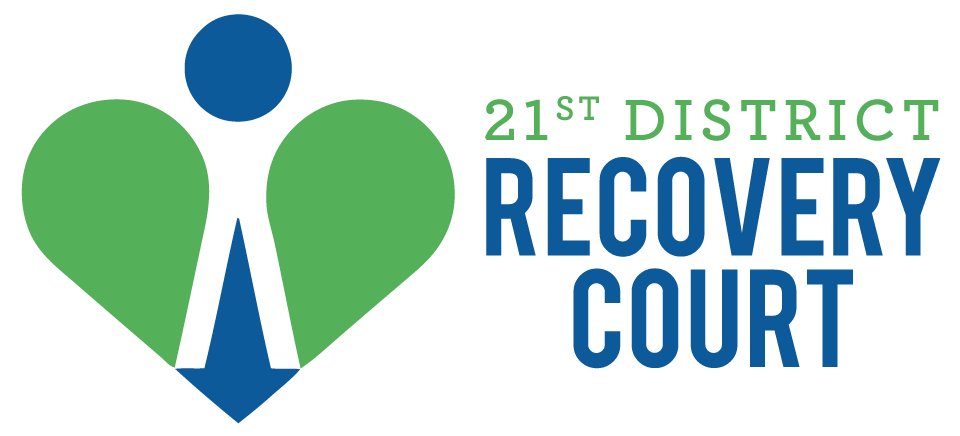22 Years of Restoring Lives
Our mission is to end the cycle of addiction and crime in our community by providing accountability and compassion to non-violent offenders in the criminal justice system. In doing so, lives are saved, families are restored and communities become safer and more productive.
Recovery Courts save taxpayers
For every $1 invested in recovery courts, taxpayers save as much as $35 in avoided criminal justice cost alone.

Money saved per $1 invested

Est annual cost for each participant, paid with grants and private funding
vs.

Annual cost to incarcerate an offender
We receive no taxpayer funding from the counties we serve

We are funded primarily through grants and private donations
Recovery Courts reduce crime
70% of our participants maintain employment and remain productive members of society years after completing the program. Many have regained custody of their children, re-established relationships with their families, and continued their education.

Program graduates since 2004
22 Years of Restoring Lives
Our mission is to end the cycle of addiction and crime in our community by providing accountability and compassion to non-violent offenders in the criminal justice system. In doing so, lives are saved, families are restored and communities become safer and more productive.
Recovery Courts save taxpayers
For every $1 invested in recovery courts, taxpayers save as much as $35 in avoided criminal justice cost alone.

Money saved per $1 invested

Est annual cost for each participant, paid with grants and private funding
vs.

Annual cost to incarcerate an offender
We receive no taxpayer funding from the counties we serve
We are funded primarily through grants and private donations
Recovery Courts reduce crime
70% of our participants maintain employment and remain productive members of society years after completing the program. Many have regained custody of their children, re-established relationships with their families, and continued their education.

Program graduates since 2004

Thursday, April 3, 2025 • 7:00-9:00 PM • The Franklin Theatre

The 21st District Recovery Court is hosting their 3rd annual singer-songwriter night on Thursday, April 3, 2025, from 7–9 PM at The Franklin Theatre. Join us for an intimate musical experience with some of country music’s most talented singer-songwriters.
This year’s artist lineup includes Charles Kelley, one third of the seven-time GRAMMY® Award-winning Lady A. Kelley joins singer-songwriter, Ernest, whose songwriting credits include 11 number one hits. Brett and Brad Warren of The Warren Brothers, serve as the event’s hosts again this year. In addition to their collaborations with Kelley and Ernest, the duo has written numerous hits for Tim McGraw, Keith Urban, Jason Aldean, Faith Hill, Martina McBride, Blake Shelton, Toby Keith and more.
All proceeds from the event will go directly to Recovery Court to support its 21-year mission to end the cycle of addiction and crime in our community by providing accountability and compassion to non-violent offenders in the criminal justice system.
Those who would like to support Recovery Court but cannot attend the event may make an online donation.
The Stories Behind the Songs with Lady A’s Charles Kelley, Ernest, and The Warren Brothers will be held Thursday, April 3, 2025, from 7–9 PM at The Franklin Theatre. Tickets are available at franklintheatre.com.
Can’t attend but would love to support our mission?
Presented By


Our Mission
The mission of the 21st District Recovery Court is to end the cycle of addiction and crime in our community by providing accountability and compassion to non-violent offenders in the criminal justice system. In doing so, lives are saved, families are restored and communities become safer and more productive.
Our History
With a proven record of reducing recidivism and saving taxpayer money, the 21st Judicial District Recovery Court program began in 2001 with the Honorable Timothy L. Easter, Honorable Donald P. Harris and coordinator, Gayle Moyer Harris.
The organization received its nonprofit status in April 2002 and the first participants were accepted into the two-year program in August 2002. Since this time, more than 300 individuals have actively participated in Recovery Court with more than 200 graduating.
In the last five years, Recovery Court has seen 90 percent of its participants maintain full or part-time employment. Participants have also regained custody of their children and re-established relationships with their families. Others have continued their education, some receiving a GED, high school diploma or pursuing higher education. Most importantly, a significant majority of graduates remain productive members of society years after completing the program.